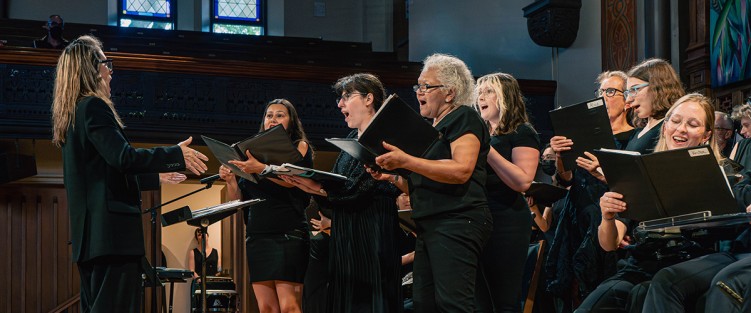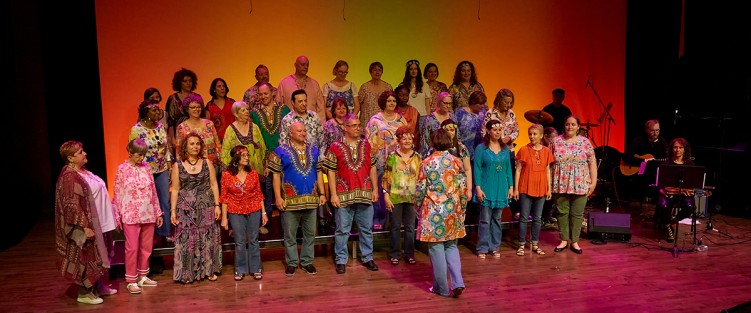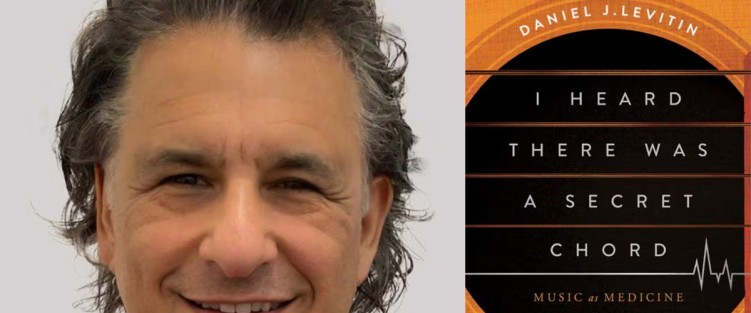 Chandeliers shone down on empty tables. A handful of other early-admitted guests chatted next to the cash-only bar as RESOUND Choir warmed up. Many of the 60 singers wore a gold pin with the choir’s symbol: a phoenix. Their dress for the evening was otherwise business casual.
Chandeliers shone down on empty tables. A handful of other early-admitted guests chatted next to the cash-only bar as RESOUND Choir warmed up. Many of the 60 singers wore a gold pin with the choir’s symbol: a phoenix. Their dress for the evening was otherwise business casual.
The singers filed off their risers and front-of-house opened the doors. Within ten minutes, an audience of almost 300 packed the room.
I’d gone to LVIV Pavilion Banquet Hall in Oshawa mid-October for a concert called Sips & Shanties. RESOUND Choir was celebrating its fifth anniversary with a program of Canadian folk music and works by contemporary Indigenous composers. I was particularly curious to hear how they’d handle songs popularized by the Rankin Family, who formed a big part of the soundtrack of my childhood in Nova Scotia.
 The time: Jun 1 at 2:30pm: VIVA Singers Toronto. Metamorphosis. Featuring all seven VIVA Singers Toronto choirs, plus a special alumni choir, and guest artists Amiel Ang, percussion, and Tatsuki Shimoda, recorder.
The time: Jun 1 at 2:30pm: VIVA Singers Toronto. Metamorphosis. Featuring all seven VIVA Singers Toronto choirs, plus a special alumni choir, and guest artists Amiel Ang, percussion, and Tatsuki Shimoda, recorder. 





